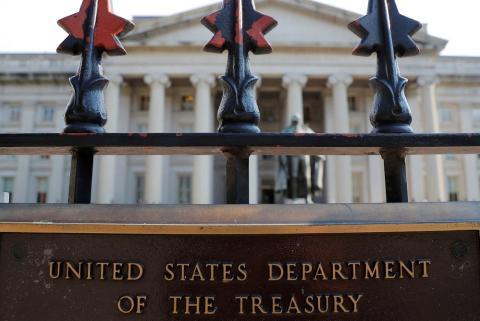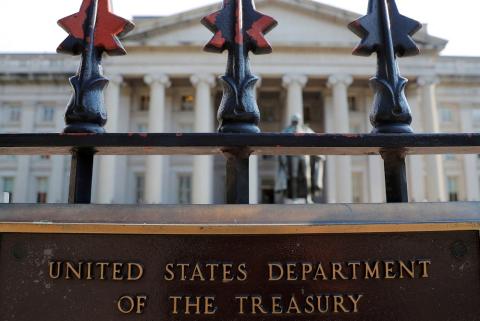
The United States said on Thursday it had imposed sanctions on the Iranian construction sector and trade in four materials used in its military or nuclear programs, even as it kept alive one of the last remaining components of the 2015 nuclear deal by extending sanctions waivers to let foreign firms continue non-proliferation work in Iran.
President Donald Trumps administration last year pulled out of the 2015 deal in which Iran agreed to limit its nuclear program in return for the lifting of sanctions that crippled its economy.
The administration has since restored and tightened US sanctions to try to force Iran to negotiate a broader deal that would also limit its ballistic missile program and regional activities.
The State Department said Secretary of State Mike Pompeo had determined Irans construction sector was controlled directly or indirectly by Irans Revolutionary Guard Corps (IRGC), which Washington regards as a foreign terrorist organization.
As a result, the sale of raw and semi-finished metals, graphite, coal, and software for integrating industrial purposes will be sanctionable if the materials are to be used in Irans construction sector, the department said in a fact sheet.
In a second determination, Pompeo identified four "strategic materials" as being used in connection with nuclear, military, or ballistic missile programs, making trade in them subject to sanctions.
The fact sheet identified the materials as: "stainless steel 304L tubes; MN40 manganese brazing foil; MN70 manganese brazing foil; and stainless steel CrNi60WTi ESR + VAR (chromium, nickel, 60 percent tungsten, titanium, electro-slag remelting, vacuum arc remelting)."
In a separate statement, State Department spokeswoman Morgan Ortagus said the determinations gave Washington the ability "to prevent Iran from acquiring strategic materials for the IRGC, its construction sector, and its proliferation programs."
Reuters reported on Wednesday that the United States planned to allow Russian, Chinese and European companies to continue work at Iranian nuclear facilities to make it harder for Iran to develop a nuclear weapon.
The Trump administration would let the work go forward by issuing waivers to sanctions that bar non-US firms from dealing with the Atomic Energy Organization of Iran (AEOI).
The waivers had been due to expire Tuesday but were extended by Pompeo for another 90 days. The extensions were not announced until Thursday.
Nuclear deal critics, including Trump allies like Republican Sens. Ted Cruz of Texas and Tom Cotton of Arkansas, have long argued that the waivers should be revoked because they give Iran access to technology that could be used for weapons.
"This is disappointing and another lost opportunity to tear up the catastrophic Obama-Iran nuclear deal once and for all," Cruz and Sen. Lindsey Graham said in a statement. "President Trump should immediately order his administration to stop issuing civil nuclear waivers."
They said they would soon advance legislation "to reverse this misguided decision."











